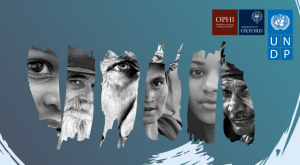Islamabad, Oct 20: Experts Cite Political Instability and Climate Change as Key Drivers Behind Rising Poverty Index. Munir Ahmed, the executive director of Devcom-Pakistan, stated on Saturday that climate change was a serious threat to natural resources, disproportionately impacting the poor and feeding the cycle of poverty.
Speaking as a guest speaker at the Islamabad Crescent Lions Club monthly meeting here on Saturday, he claimed that droughts, floods, and shifting weather patterns, as well as the depletion of essential natural resources like water, soil, and biodiversity, disrupt agricultural production, which is frequently the main source of income for underprivileged communities. According to a press release, persons who depend on these resources for survival would experience more insecurity, fewer food, and lower income as a result of their depletion.
According to Munir Ahmed, “economic diversification is usually limited in poor communities.” These communities confront immediate economic difficulties when industries like forestry, fisheries, or agriculture are adversely affected by climate change.
Because families find it difficult to pay for necessities like food, housing, and medical care, income loss can result in higher levels of poverty. Political unrest and climate change are the two main causes of Pakistan’s rising poverty index in recent years. “Despite international commitments, there is no repair to the losses of the devastating floods,” he continued.
Food prices can soar when agricultural output declines as a result of unpredictable weather patterns and resource constraint, making it more difficult for low-income people to obtain wholesome food. Malnutrition and associated health issues can result from food insecurity, further impoverishing households.
In the meantime, health problems have been made worse by climate change, especially in underprivileged areas with limited access to quality healthcare. The development of illnesses, respiratory problems brought on by pollution, and an increase in mental health concerns can all result from warming temperatures and shifting ecosystems. According to him, ill health can reduce one’s ability to work and financial security, which feeds the poverty cycle.
Poor communities frequently lack the infrastructure, technology, and resources necessary to adapt to changing climate conditions, according to Sibtain Raza, the founder of the ICLC. These communities are left vulnerable and unable to put policies in place that could help them adapt to environmental changes because they lack access to funding or creative methods.
ICLC is working to create a network of social philanthropists who will utilize their riches to help the underprivileged and disenfranchised. Only the most worthy will receive free meals; not everyone will.The meeting’s host, Dr. Imran Iqbal, stated that societal unrest and conflict over diminishing resources can result from climate change, which intensifies poverty and resource shortages.
In addition to impeding development initiatives, this instability has the potential to prolong cycles of displacement and violence. To counteract the effects of poverty and climate change, which put vulnerable populations in a more complicated and dire situation, we must work together.









